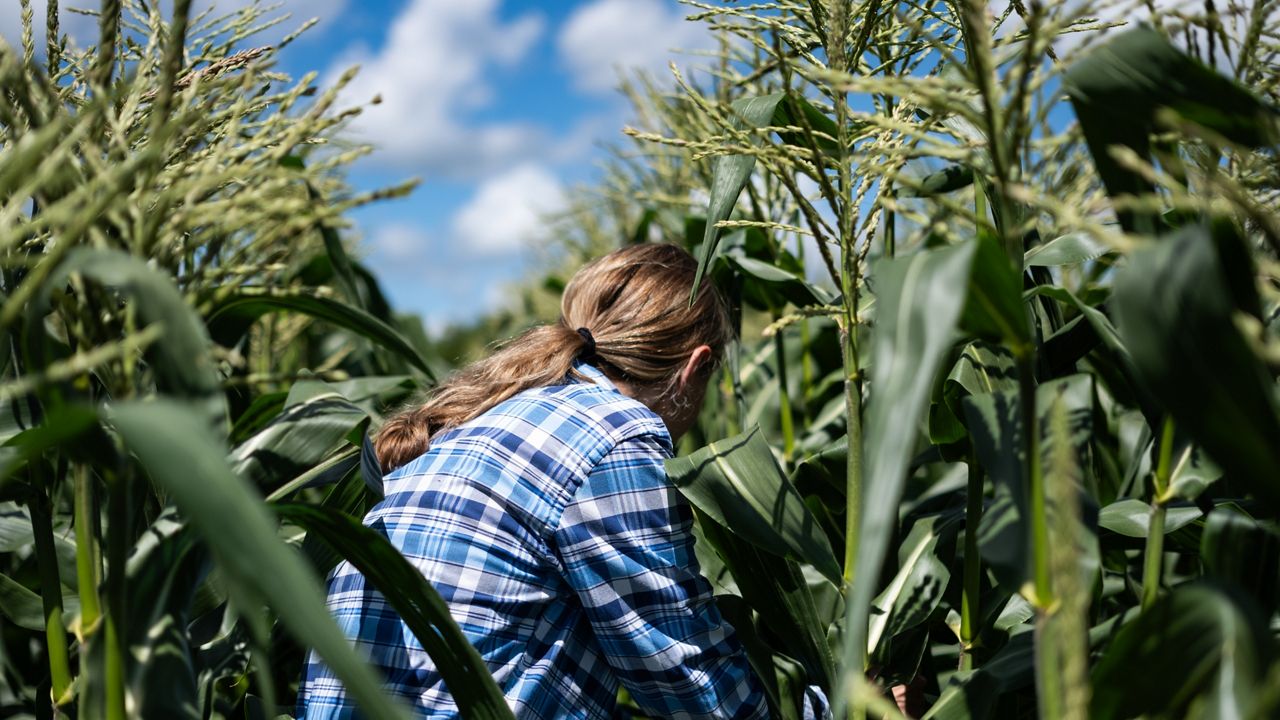A bill banning the use of neonicotinoids pesticide treated corn, wheat and soybean seeds awaits the signature of Gov. Kathy Hochul, but the New York Farm Bureau is making a final push for her to veto the legislation citing concerns about its impact on farmers.
“When we talk about seed treatments and especially this year with such a wet weather season, the pest pressures were very high and so farmers need seed treatments to control pests on their fields,” said Jeff Williams, director of public policy at the New York Farm Bureau.
Neonicotinoid pesticides are one of the most common pesticides used on farms and have been found to interact with the nervous system of honeybees, according to the National Institute of Health. According to a report from the Environmental Protection Agency, neonicotinoids are putting 200 endangered species at risk.
In an interview with Spectrum News 1 in August, Dan Raichel, director of the Pollinator Initiative for the Natural Resources Defense Council, said the impacts of these pesticides are worse than any other since DDT.
“Neonics are neurotoxic pesticides known for driving mass loss of bees and other pollinators in New York and across the globe,” Raichel said.
The use of seeds treated with the pesticide, however, is better than broadly spraying it on a field, which would be the alternative if the bill is passed, Williams said.
“The active ingredient of that pesticide is only an ounce per acre when using seed treatments. If farmers were spraying pesticides on the field, it would be gallons per acre,” he said.
Karin Reeves, a co-owner of Reeves Farm in Baldwinsville, said if the bill passes it could impact the purchasing availability of sweet corn seeds.
“Today, most commercially available sweet corn is treated with seed treatments, and it could get difficult for us to get untreated seeds,” Reeves said.
It could also increase the risk for planted sweet corn due to the pests neonicotinoids are used to prevent, she said.
Williams said the seeds could become more expensive as well because they are modified for certain climates and soil types.
“We would be limiting our availability of seed considerably in New York state because seed producers aren’t going to make unique seeds just for New York state. They look at the nation and try to fit in and look at other states that are much bigger when it comes to the presence of these crops such as the Midwest,” Williams said.
Hochul vetoed a bill earlier this month that would have allowed local governments to restrict the use of pesticides on wetlands as it would undermine the integrity of the New York Department of Enviornmental Conservation’s pesticide program, according to her veto message.
“The DEC has a rigorous review of pesticides in New York state and so we’re only asking the governor to do the same for this bill. Let science and the process through the agencies work, not have legislators try to restrict pesticide use one by one each year,” Williams said.


